The Pollinating Regeneration program has its first two ideas becoming reality: a project leading innovations based on indigenous wisdom.
Authors: Jonas Guajajara, Tainá Viana e Ana Rosa.
Leia em português.
This is a very special project that had a long preparation process, after all it was born from strong bonds of trust created over the years within our Impact Network. The project takes place in the Araribóia Indigenous Land, over 400,000 ha in a region with several threats to biodiversity. We see how large these threats are in situations like in 2015, when about 52% of its area was affected by illegal fires invading their area. At the same time, the territory is also home to the Awá, isolated indigenous peoples considered by some to be the most threatened people in the world. This combination makes clear the urgency of developing projects to support regenerative activities there.

Four Guajajara leaders participating in the Meli Network participated, in November 2022, along with other leaders from indigenous, foraging and peasant communities in an Ideas Workshop during a Meli meeting in São Luís, Brazil. The Ideas Workshop is the initial part of the Pollinating Regeneration Program, supported by the Rockefeller Foundation. During this workshop, the Guajajara leaders showed interest in eight ideas in total. The “podium of ideas” were: (1) seedling production with seeds collected in the territory, (2) support to an indigenous school in the Barreirinha village and (3) creation of bees native to the local biodiversity, meliponiculture. It was easy to see that we were in front of young indigenous leaders ready to lead an innovative project for international cooperation.
In parallel, L’Occitane believed once again in Meli’s impact and at the end of 2022 we started the second partnership project between L’Occitane and Meli. This project focuses precisely on two of the three most urgent ideals for the Guajajara leaders mentioned: regeneration through the production of seedlings with local seeds and meliponiculture. In this way it was easy to connect Guajajara ideas with another important supporter in the development of their activities!
Two of these ideas from the Guajajara leaders were the first two ideas raised during the Ideas Workshop that could be taken to the next phases! Jonas Guajajara, local leader and agroecology technician very active in our network, soon officially joined the team and is already leading the development of many things there:
Ma’eputyr
The name Ma’eputyr comes from the Tupi Guajajara language meaning flower, the reproductive organ that later generates the fruit that gives rise to a new plant. In this reproductive process, bees play a very important role as pollinators that contribute to the maintenance of the biodiversity of plants.
The cultivation of regional native species highlights a quality for the production of seeds and seedlings with proper management. Thus, in the future everything that is planted today will be harvested by future generations. The bees in turn will benefit from the availability of pollen from the flowers to produce honey, and will subsequently bring benefits, generating resources for the communities.
Starting from this significant idea, and analyzing the environmental problems present in indigenous regions, the Ma’eputyr project aims to involve the indigenous villages of the Araribóia territory in the production of seedlings of endangered native plants, to protect the creation of stingless bees, and thus develop the rescue of the regional fauna and flora. With this, current and future generations will be able to know and learn about the care and importance of preserving natural resources.
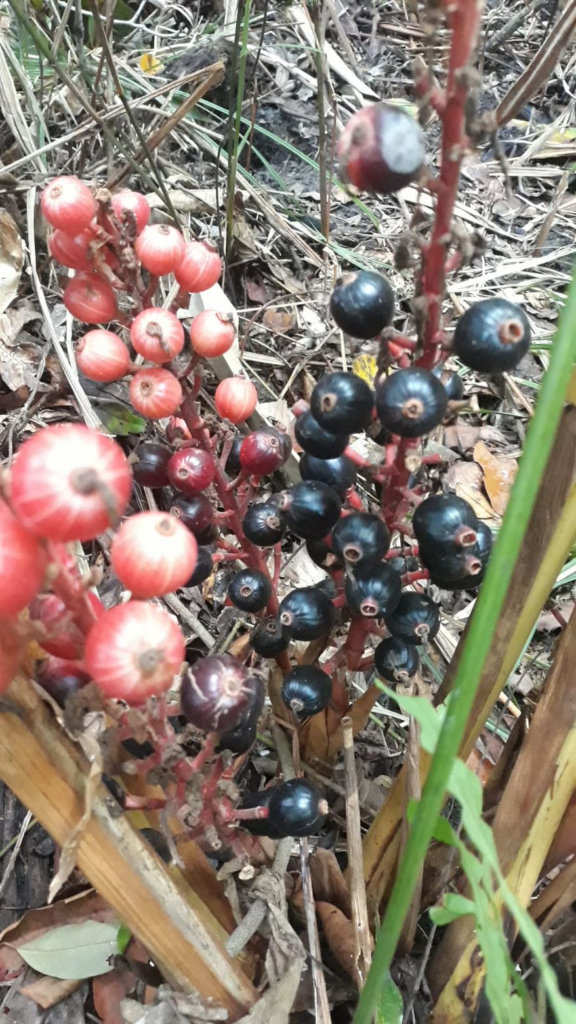
The project engages 10 (ten) indigenous villages, from 5 regions of the indigenous land:
- Aldeia Barreirinha – Lago Branco Region
- Aldeia Toarizinho – Lago Branco Region
- Aldeia Lago Branco – Lago Branco Region
- Aldeia Vila Nova – Lago Branco Region
- Aldeia Zutiwa – Zutiwa Region
- Aldeia Buritirana II – Abraão Region
- Aldeia Abraão – Abraão Region
- Aldeia Ipiranga- Abraão Region
- Aldeia Ponta D`água – Ponta D`água Region
- Aldeia Arari- Angico Torto Region
The project has the following main activities:
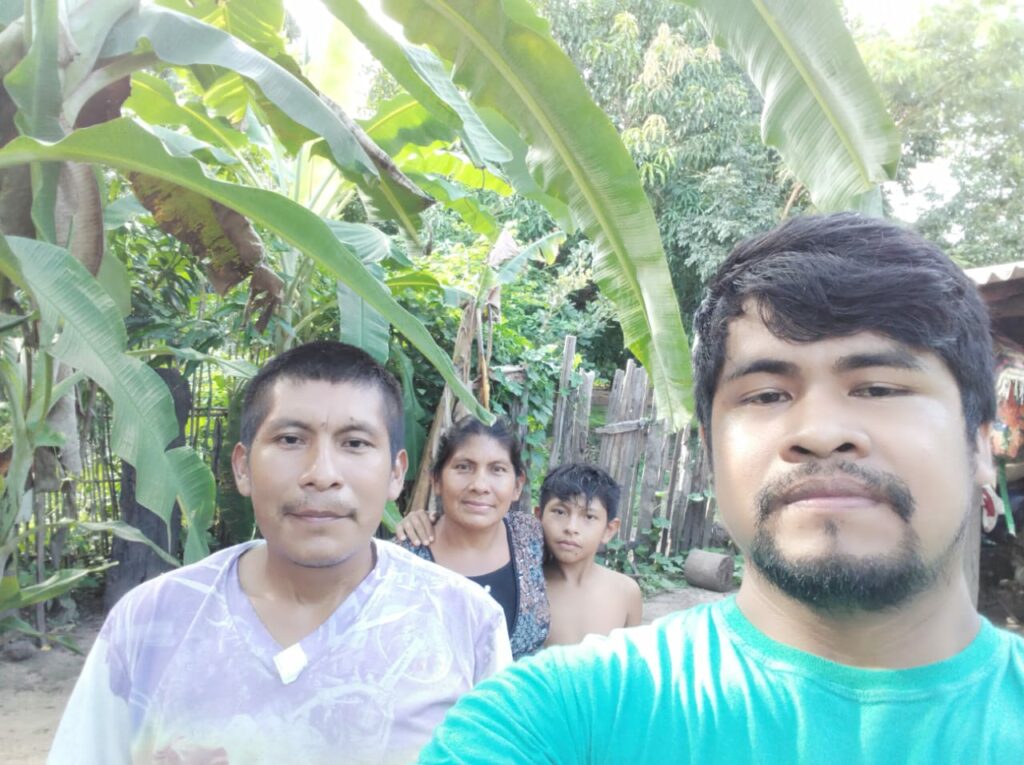
1. Planning and meeting with villages
In the first week of February 2023, planning and research was done about which villages would participate in the project. Several villages were visited for meetings with chiefs, coordinators, and communities. Jonas Guajajara presented the Melli Network and the Ma’eputyr project, and talked about how the ideas and planning will work. As a result, people showed interest in developing the project in the region.
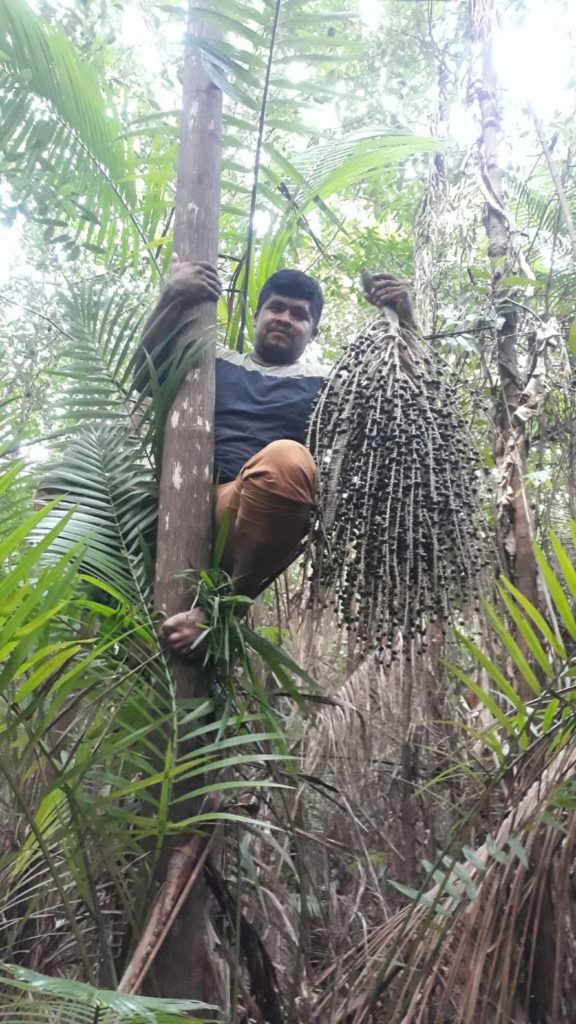
- Gathering of seeds
An important part of the project is the identification and research on the importance of some seeds that will be used in the production of seedlings of native species. The indigenous leaders selected to search for seeds of:
- Bacaba- Pinuwa – Oenocarpus balickii F.Kahn
- Juçara – Zyhar – Euterpe edulis Mart.
- Buritirana – Murutiràn – Arecaceae Mauritiella
- Buriti – Muruxi`a – Mauritia flexuosa L.f
- Bacuri – Pakuri – Platonia insignis
- Pequi- Peke`a – Caryocar brasiliense
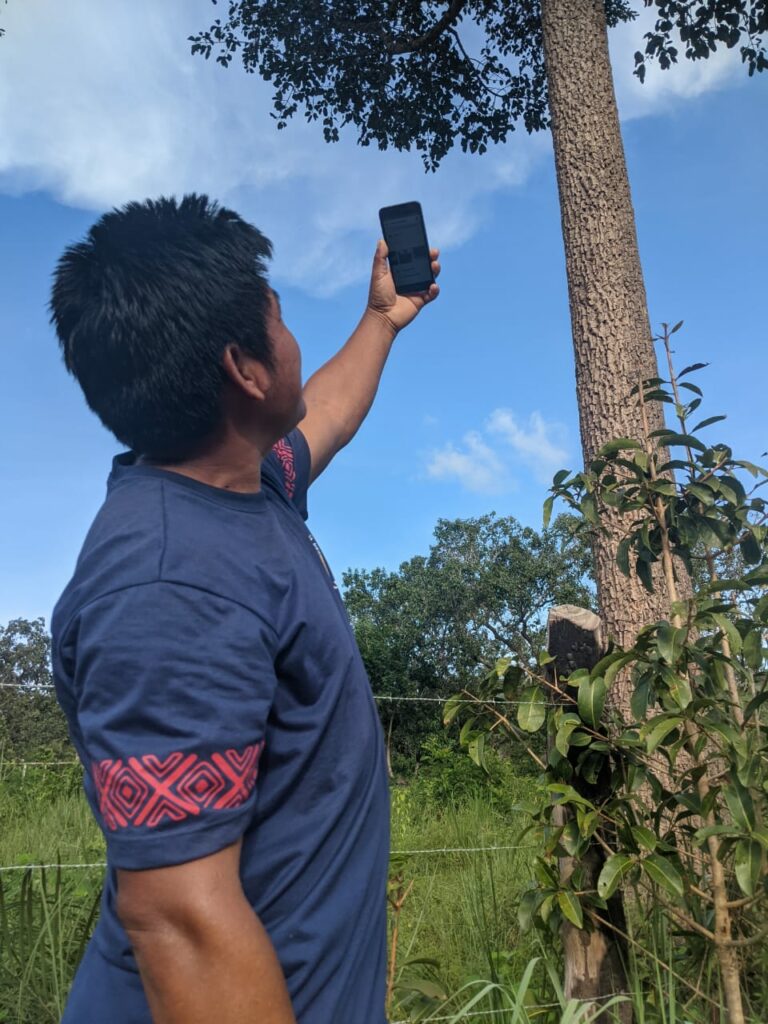
3. Use of Mapeo
To facilitate activities such as protecting the local forest and collecting seeds, the community used Mapeo, a georeferencing and area monitoring application. Through the application it is possible to make records of the villages and everything they own, and also to be warned when there are threats and invasions in the territory. It brings technological ease to the indigenous people who carry out risky protection work, and with the handling of this technology it will facilitate communication.
With the help of Luandro and in partnership with the organization Digital Democracy, Meli helped lead three workshops (in the villages Barreirinha, Lago Branco and Zutwia) on the use of this tool of great interest to the Guajajara.
4. Nursery Implementation
Nurseries based on indigenous wisdom and using as much local material as possible! We are currently planning the nurseries and Francisco Guajajara has just joined the team to further strengthen our activities!
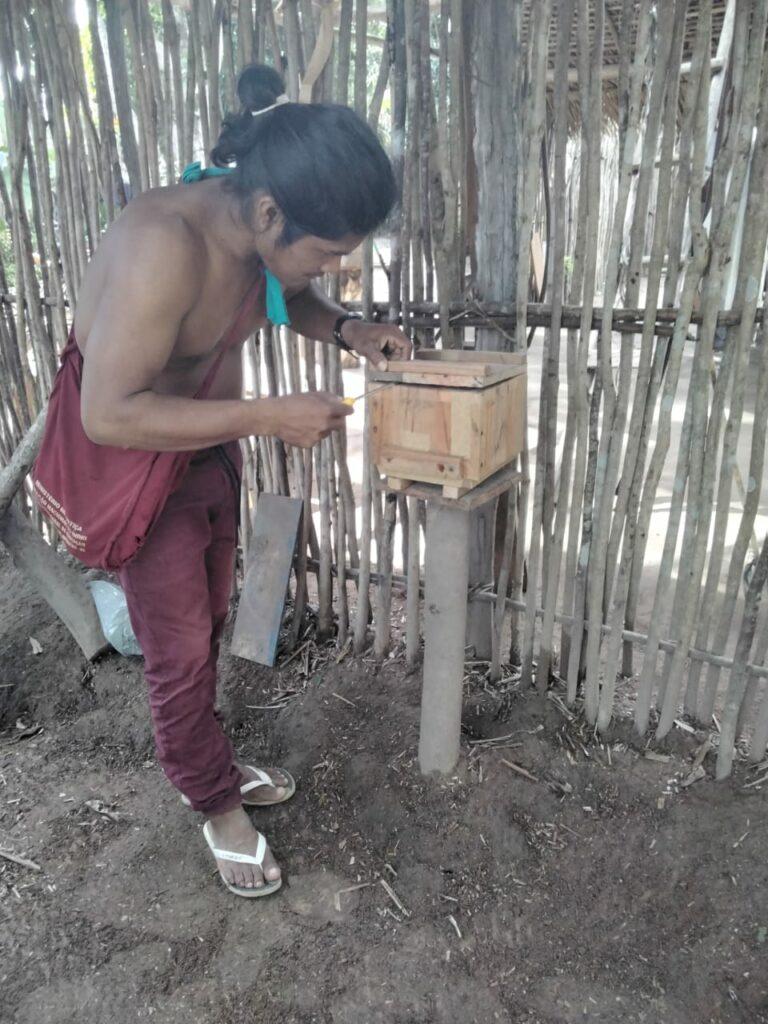
.
5. Seedlings production
With the nurseries ready, the production of seedlings will be further strengthened! Now the communities will have a space designed exactly for the seedlings to grow properly.
.
6. Native beekeeping
Of course beekeeping couldn’t be left out, it was exactly this activity that initially connected us with Jonas Guajajara. He is a great meliponiculturist with a beautiful work of protection and love for bees.
This project really has immense potential and I look forward to telling you more about its development! Keep an eye on our blog and on our newsletter to follow everything that is happening. We’ll soon write more about each of the activities being developed during this project.
Your donation can have a positive impact on the world!
Subscribe to receive our Newsletter!
Find us also at Linkedin, Facebook, Twitter or Instagram
www.meli-bees.org
❤️


3 Replies to “Ma’eputyr Project”